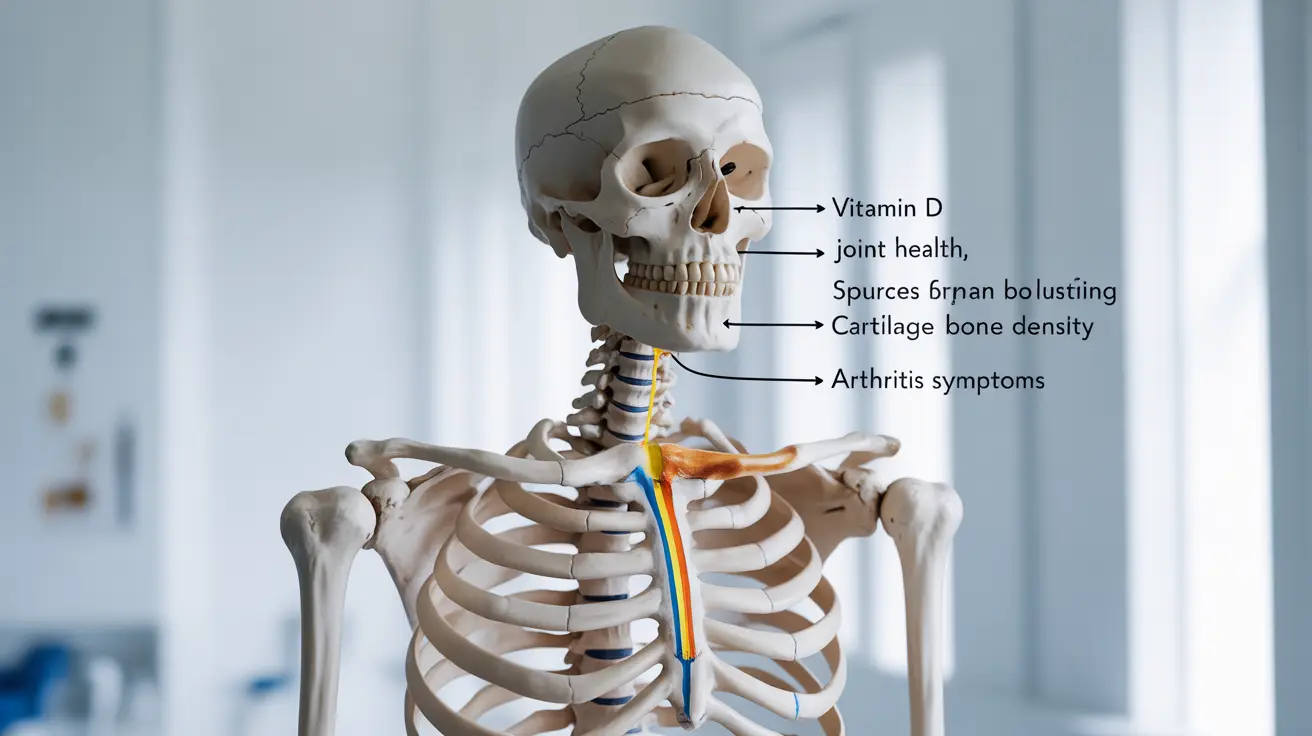Living with arthritis presents numerous challenges, and maintaining proper vitamin D levels is crucial for managing this condition effectively. Vitamin D plays a vital role in bone health, immune system function, and inflammation control - all key factors for people dealing with various forms of arthritis.
Understanding the connection between vitamin D and arthritis can help you make informed decisions about your health management strategy. This comprehensive guide explores how vitamin D impacts arthritis symptoms and what you need to know about supplementation.
The Critical Role of Vitamin D in Arthritis Management
Vitamin D serves multiple essential functions in managing arthritis symptoms and progression. It helps regulate the immune system, which is particularly important for autoimmune conditions like rheumatoid arthritis. Additionally, this vital nutrient supports calcium absorption, maintaining bone strength and reducing fracture risk.
Impact on Inflammation and Joint Health
Research suggests that adequate vitamin D levels can help reduce inflammation in the joints, a primary concern for arthritis patients. The vitamin's anti-inflammatory properties may help decrease pain and stiffness while potentially slowing disease progression in some forms of arthritis.
Understanding Vitamin D Deficiency in Arthritis
People with arthritis face an increased risk of vitamin D deficiency for several reasons. Limited mobility may reduce outdoor activities and sun exposure, while certain medications, particularly corticosteroids, can interfere with vitamin D metabolism.
Risk Factors for Deficiency
- Limited sun exposure
- Certain medications, especially corticosteroids
- Age-related reduced absorption
- Inflammatory conditions affecting vitamin D metabolism
- Geographic location and seasonal changes
Sources and Supplementation Guidelines
Obtaining adequate vitamin D requires a balanced approach combining natural sources, safe sun exposure, and possible supplementation under medical supervision.
Natural Sources of Vitamin D
- Fatty fish (salmon, mackerel, tuna)
- Egg yolks
- Fortified foods (milk, cereals, orange juice)
- Mushrooms exposed to UV light
- Controlled sun exposure
Safe Supplementation Practices
While supplementation can be beneficial, it's crucial to work with healthcare providers to determine appropriate dosing. Individual needs vary based on current vitamin D levels, medication use, and other health factors.
Monitoring and Maintaining Optimal Levels
Regular monitoring of vitamin D levels through blood tests helps ensure appropriate supplementation and prevents both deficiency and excessive intake. Your healthcare provider can recommend testing frequency based on your individual situation.
Frequently Asked Questions
What are the benefits of vitamin D for people with arthritis, especially rheumatoid arthritis?
Vitamin D helps reduce inflammation, supports immune system function, and maintains bone health. For rheumatoid arthritis specifically, it may help moderate immune system response and reduce disease activity.
How does vitamin D deficiency affect bone health and fracture risk in arthritis patients?
Vitamin D deficiency can significantly increase fracture risk by impairing calcium absorption and bone mineralization. This is particularly concerning for arthritis patients who may already have compromised bone density.
Can vitamin D supplements help reduce joint pain or slow arthritis progression?
Research indicates that maintaining adequate vitamin D levels may help reduce joint pain and potentially slow disease progression. However, results vary among individuals, and supplementation should be part of a comprehensive treatment plan.
Why are people with arthritis, particularly those on steroids, at higher risk of vitamin D deficiency?
Steroid medications can interfere with vitamin D metabolism and absorption. Additionally, reduced mobility and limited sun exposure common in arthritis patients can contribute to lower vitamin D levels.
What are safe sources and recommended doses of vitamin D for managing arthritis-related bone health?
Safe sources include sunlight exposure (10-15 minutes daily), vitamin D-rich foods, and supplements as prescribed by healthcare providers. Recommended doses vary but typically range from 600-4,000 IU daily, depending on individual factors and current vitamin D status.




